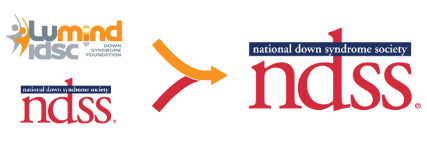People with Down syndrome live longer and more independently now than ever before. Supported by advances in medical care, community programs, and supportive caregiving, people with Down syndrome are leveraging better health and opportunities into the realization of individual goals, hopes, and dreams.
During the past 15 years, LuMind IDSC has raised a total of $85M in funding for scientific research to advance understanding of the medical challenges of people with Down syndrome. Despite a robust academic research field and growing industry interest in Down syndrome-related conditions, too many of the community’s medical and therapeutic needs continue to go unmet.
One of the most challenging medical issues facing the Down syndrome community is the early onset of Alzheimer’s: More than 90% of people with Down syndrome will develop Down syndrome associated Alzheimer’s disease (DS-AD), and at a much earlier onset age than the general population.The Down syndrome community – parents, siblings, caregivers, and individuals with Down syndrome themselves – is beginning to understand the many ways an Alzheimer’s diagnosis and development of symptoms is likely to change their quality of life, as early as their 40s and 50s. That is why Down syndrome researchers in academia, industry and non-profit organizations are engaged in an ongoing quest for therapies, drugs, and diagnostic tools to better identify and slow the progression of DS-AD.
LuMind IDSC is uniquely positioned at the crossroads of Community and Science, where our research initiatives are focused on the acceleration of Alzheimer’s drug development and facilitating paths to treatments that are safe and effective for people with Down syndrome.
To that end, LuMind IDSC recently conducted a “Critical Path Innovation Meeting (CPIM)” with the Food & Drug Administration (FDA). LuMind IDSC brought together investigators from pharmaceutical companies, academia, patient advocacy groups, government, and Down syndrome representatives to explore innovative ideas to augment drug development and other scientific advances focusing on DS-AD. This meeting provided LuMind IDSC the opportunity to reinforce the scientific, moral, and practical reasons why the Down syndrome population should have a voice at the AD drug research table.In June, the FDA granted “accelerated approval” to Biogen’s Aduhelm drug. This is the first new drug approved for Alzheimer’s disease since 2003. It is also the first approved drug designed to remove amyloid beta plaques.
Aduhelm is a pioneering drug, a first-generation attempt to treat one of the disease processes associated with the progression of Alzheimer’s disease – the amyloid beta plaques in the brain.
In addition to its primary purpose, the science behind Aduhelm signals promise for the principle of “combination” therapies: a treatment course of multiple drugs that would attack amyloid beta plaques and other processes associated with Alzheimer’s disease (such as the neuro-toxic tau tangles or brain inflammation pathways). Many breakthrough treatments in complex diseases such as HIV/AIDS and cancer have come from combination therapies. The approval of Aduhelm offers the possibility for the development of combination therapies for Alzheimer’s disease.
The successful development of this type of treatment and its path to approval with the FDA are hugely significant steps in the Alzheimer’s disease research field. As has been seen with many other unmet medical needs, a “first” FDA approval increases investments in research and development towards the next generation of improved treatments. At LuMind IDSC we are hopeful the approval of Aduhelm – even limited as it is now to a specific sub-set of Alzheimer’s patients with mild cognitive impairment or mild dementia – will translate to future treatment options for adults with Down syndrome.As Aduhelm and a potential new class of “plaque buster” drugs evolve, data are immediately needed about people with Down syndrome, their heightened risk for developing Alzheimer’s, and their rate and trajectory of Alzheimer’s symptoms development and progression. This data can come from ongoing studies in Down syndrome (such as LuMind IDSC’s LIFE-DSR Study), but more trials and data are needed to really understand how Aduhelm, and other drugs targeting amyloid beta plaque, will be tolerated by people with Down syndrome.
LuMind IDSC supports the immediate development of these trials in the Down syndrome population to increase the scientific and clinical knowledge needed for Aduhelm and other drugs to be approved for future use by people with Down syndrome.Aduhelm is only a first stop on the path to future DS-AD treatments. We call on all families, caregivers, and adults with Down syndrome to get informed about DS-AD and consider participating in these important upcoming clinical trials. To stay informed on this topic, please sign up for updates from LuMind IDSC at this link.
Learn more about DS-AD:
- Read our original statement following FDA approval of Aduhelm in June, 2021.
- Read the collaborative memorandum drafted by multiple Down syndrome researchers and clinicians, including LuMind IDSC’s Chief Scientific Officer, Dr. Jim Hendrix.
- View our most recent webinar, featuring LuMind IDSC CSO, Dr. Jim Hendrix, and learn the latest on DS-AD. If you are a myDSC member, click here for the webinar. To register for myDSC (it’s free!) and access the webinar, click here.
- Review or download this quick guide that addresses first action steps.
